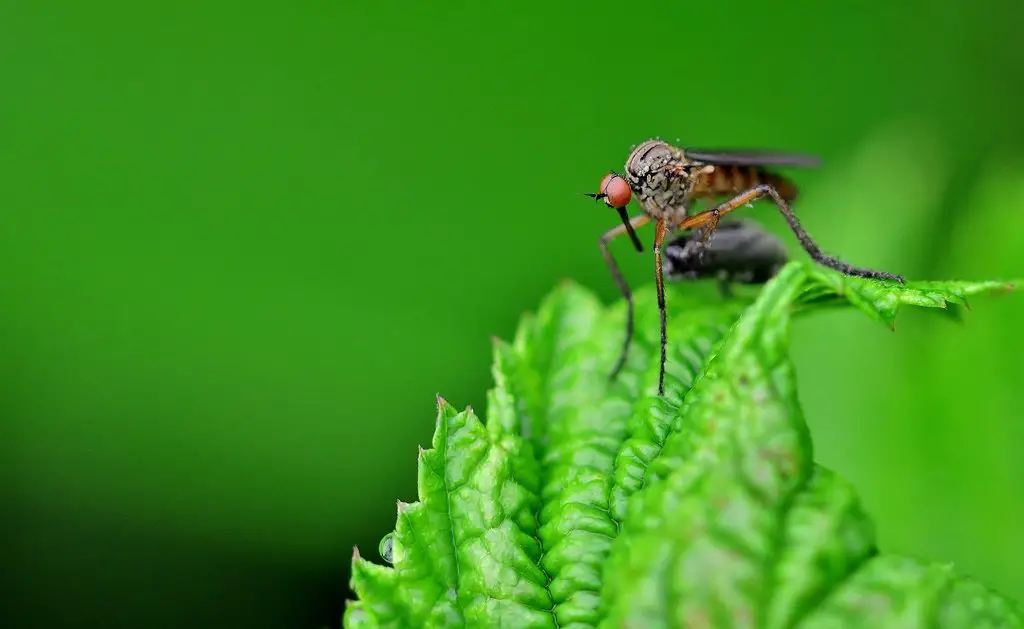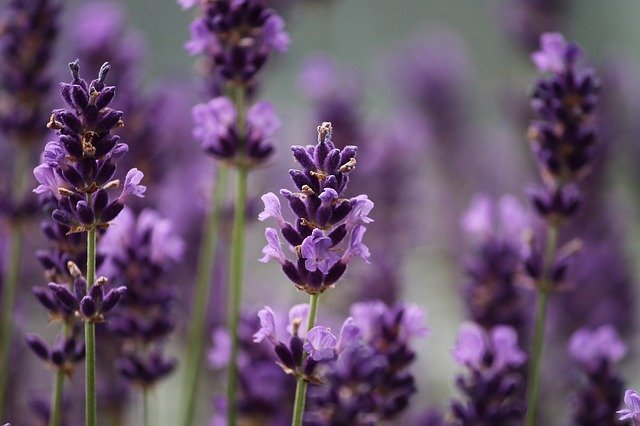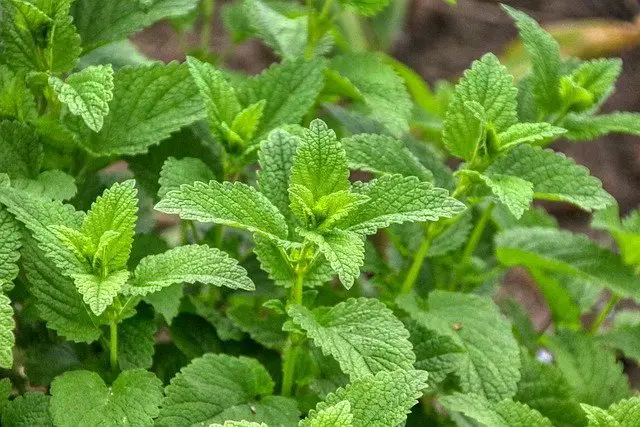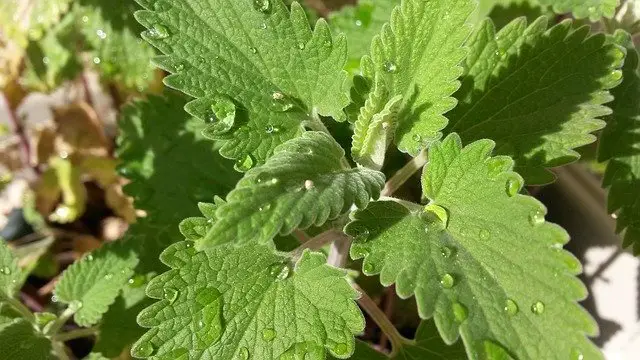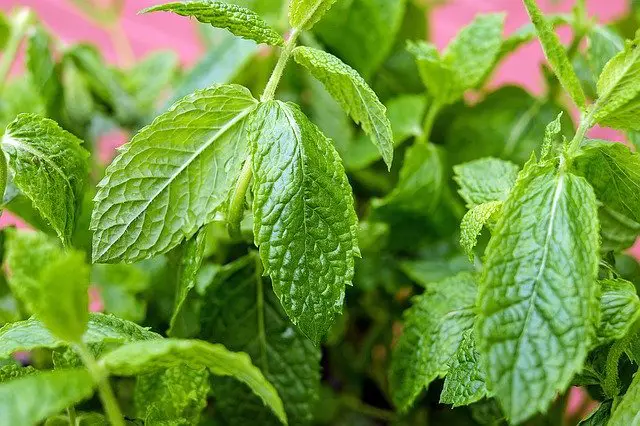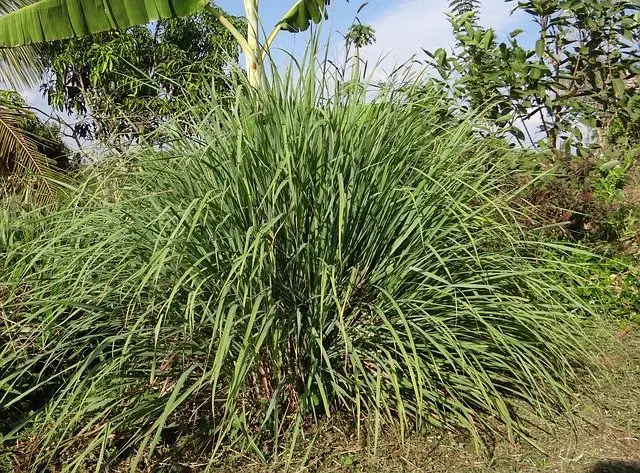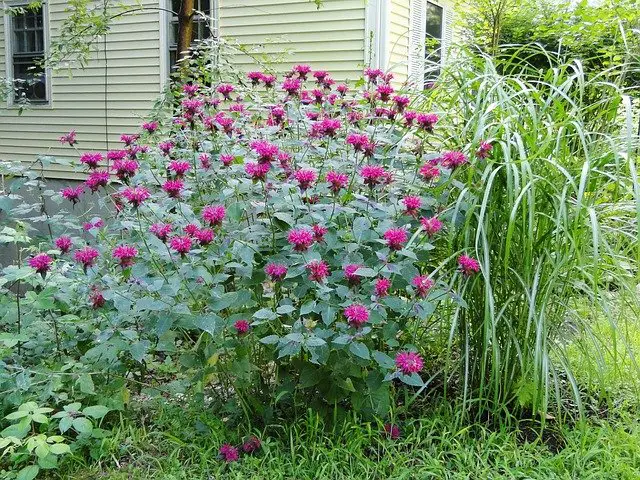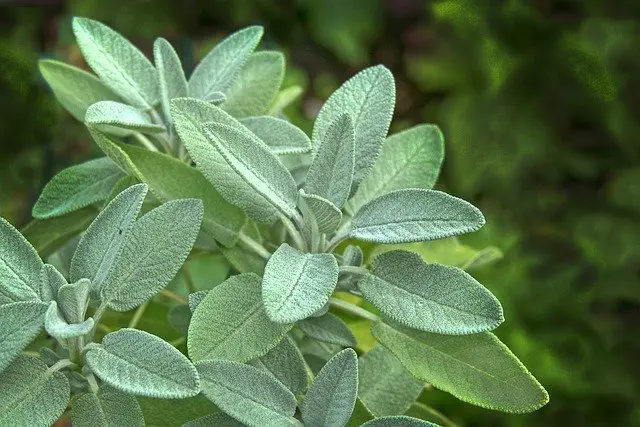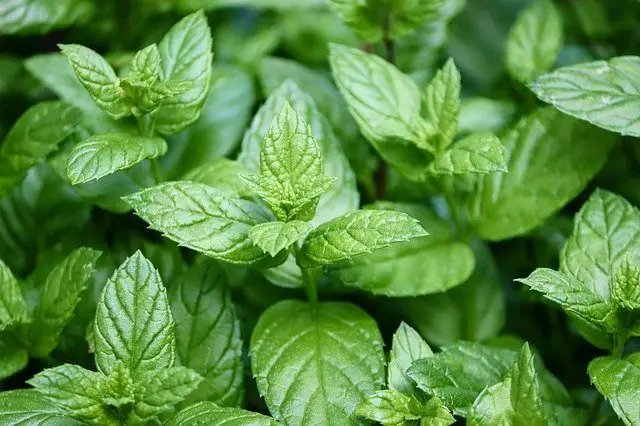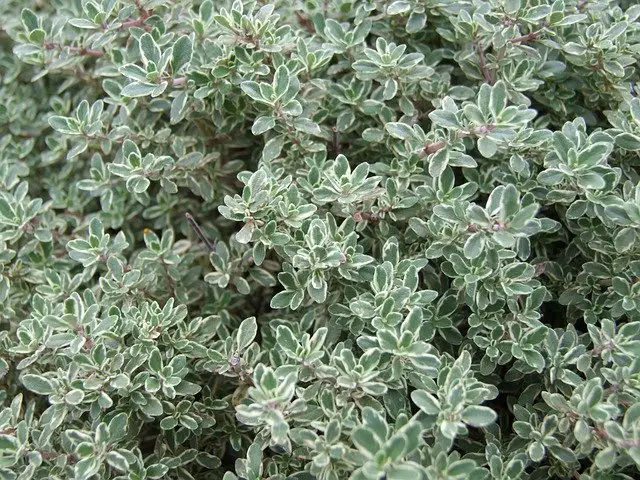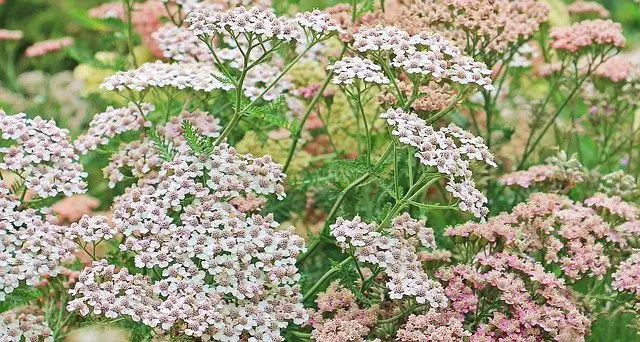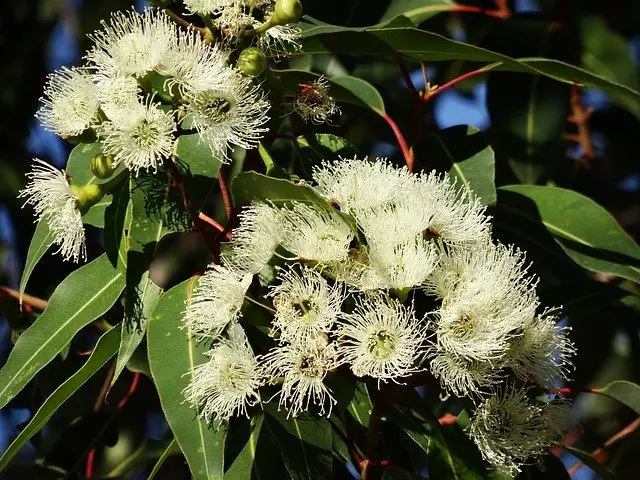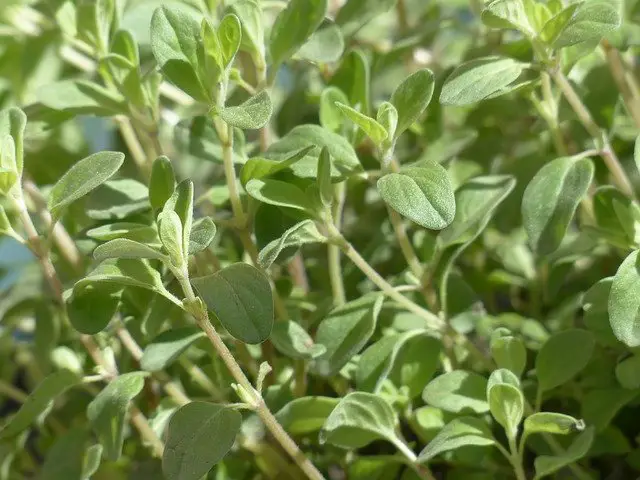What Herb Plants Keep Mosquitoes Away? 14 That Really Work!
Mosquitoes ruining your outdoor fun? You might be surprised to learn that your herb garden could be the secret weapon you need. If you’re wondering what herb plants keep mosquitoes away, this guide has the answers. From fragrant favorites to lesser-known natural repellents, we’ll reveal the best herbs to grow, and how to use them, to enjoy a bite-free backyard.
Table of Contents
Herb Plants that Keep Mosquitoes Away
Lavender
Lavender is not only known for its lovely scent but also for its effectiveness in repelling mosquitoes. The strong fragrance of lavender can deter mosquitoes and other pests, making it one of the top herb plants for natural pest control. Planting lavender in sunny spots around your garden or near entryways can help create a mosquito-free environment. You can also harvest the flowers, dry them, and create sachets to place in indoor spaces to keep mosquitoes away. Lavender oil is another great option; it can be mixed with water and sprayed in your garden or on your skin for added protection. Lavender not only works as a mosquito repellent, but it also provides calming and relaxing benefits, making it a fantastic herb to have in both your garden and home.
Lavender Uses for Mosquito Control
| Lavender Use | Purpose | How to Use |
|---|---|---|
| Plant in Garden | Repels mosquitoes naturally | Place in sunny spots around garden or entryways |
| Lavender Oil Spray | Repels mosquitoes, provides aroma | Mix with water and spray around outdoor spaces |
| Dried Lavender Sachets | Keeps mosquitoes away indoors | Place in closets, drawers, or near windows |
| Lavender in Potpourri | Creates a pleasant, mosquito-repelling scent | Display in living areas or outdoor seating spaces |
Lemon Balm
Lemon balm is a powerful herb known for its fresh lemon scent, which naturally repels mosquitoes. It’s a member of the mint family, and like other herbs in this family, its strong aroma acts as a barrier for mosquitoes and other pests. Growing lemon balm in sunny areas of your garden or in pots near entryways is a great way to keep mosquitoes at bay. You can also harvest the leaves, crush them to release the oils, and rub them on your skin as a natural, chemical-free repellent. Alternatively, lemon balm essential oil can be used in a DIY spray for outdoor areas. Whether planted in your garden or used as a topical repellent, lemon balm is an effective and versatile choice for keeping mosquitoes away.
Lemon Balm Uses for Mosquito Control
| Lemon Balm Use | Purpose | How to Use |
|---|---|---|
| Plant in Garden | Repels mosquitoes with lemon scent | Grow in sunny spots or in pots around your yard |
| Lemon Balm Oil Spray | Mosquito repellent | Mix with water and spray around outdoor spaces |
| Crushed Leaves | Natural skin repellent | Rub leaves directly on skin to ward off mosquitoes |
Catnip
Catnip is often associated with cats, but it’s also an incredibly effective mosquito repellent. The essential oil found in catnip, called nepetalactone, has been shown to be far more potent at repelling mosquitoes than DEET, the active ingredient found in many commercial insect repellents. Growing catnip in your garden or in pots around your home can help keep mosquitoes away naturally. The oil from catnip can be extracted and used in homemade sprays, or the leaves can be rubbed on your skin for a quick, natural defense. Although cats love catnip, it’s an excellent herb to include in any mosquito-repellent garden. Best of all, it’s easy to grow and requires minimal care, making it a simple solution for anyone looking to repel mosquitoes without harsh chemicals.
Catnip Uses for Mosquito Control
| Catnip Use | Purpose | How to Use |
|---|---|---|
| Plant in Garden | Repels mosquitoes with nepetalactone | Grow in garden beds or containers |
| Catnip Oil Spray | Strong mosquito repellent | Mix with water and spray around your garden |
Mint
Mint is a fragrant herb that not only adds flavor to your culinary dishes but also serves as a natural mosquito repellent. The strong scent of mint, especially when crushed, is known to irritate mosquitoes, making it an excellent option for keeping pests at bay. Mint is easy to grow, and it thrives in containers, which is ideal since it can become invasive in garden beds. Simply crush fresh mint leaves and rub them on your skin to repel mosquitoes or use mint oil in homemade insect repellent sprays. In addition to keeping mosquitoes away, mint also offers a refreshing aroma that enhances the atmosphere of your garden or home. Whether in your garden or in your kitchen, mint is a versatile herb that can help create a pest-free environment.
Mint Uses for Mosquito Control
| Mint Use | Purpose | How to Use |
|---|---|---|
| Plant in Garden | Repels mosquitoes with strong aroma | Plant in containers to control its spread |
| Mint Oil Spray | Freshens air, repels mosquitoes | Mix with water and spray around outdoor areas |
| Crushed Mint Leaves | Natural skin repellent | Rub on skin to keep mosquitoes away |
Citronella
Citronella is one of the most commonly used natural mosquito repellents and is well-known for its strong, lemon-like aroma. Citronella is commonly used in candles, sprays, and oils due to its ability to keep mosquitoes away. Planting citronella grass in your garden or using citronella oil in outdoor sprays can create a mosquito-free zone around your home. Citronella is also effective when used in combination with other mosquito-repelling herbs, enhancing the overall effectiveness of your mosquito control efforts. The plant itself is a grass-like variety that thrives in warm, sunny climates, making it a perfect addition to gardens in many areas. Whether you grow it or use its oil, citronella is a powerful ally in keeping mosquitoes at bay.
Citronella Uses for Mosquito Control
| Citronella Use | Purpose | How to Use |
|---|---|---|
| Plant Citronella Grass | Repels mosquitoes with strong scent | Grow in pots or sunny garden areas |
| Citronella Oil Spray | Repels mosquitoes naturally | Mix with water and spray around outdoor areas |
| Citronella Candles | Creates a mosquito-free zone | Light candles outdoors during gatherings or parties |
Bee Balm
Bee balm, also known as Monarda, is another herb that acts as a natural mosquito repellent. This herb produces a strong, pleasant aroma that repels mosquitoes and other insects. Bee balm is a member of the mint family and has a distinctive fragrance that is both aromatic and effective in keeping pests at bay. Growing bee balm in your garden can help create a mosquito-free area, particularly in flower beds or near seating areas. You can also use its leaves to make a simple insect-repellent spray by combining the crushed leaves with water. Bee balm’s bright, beautiful flowers make it an attractive addition to any garden while serving the dual purpose of acting as a natural mosquito repellent.
Bee Balm Uses for Mosquito Control
| Bee Balm Use | Purpose | How to Use |
|---|---|---|
| Plant in Garden | Repels mosquitoes with strong fragrance | Plant in sunny spots around garden or near seating areas |
| Bee Balm Oil Spray | Natural mosquito repellent | Mix crushed leaves with water and spray around outdoor spaces |
| Bee Balm Leaves | Repels mosquitoes naturally | Rub crushed leaves on skin for protection |
Garlic
Garlic is more than just a staple in cooking; its pungent aroma can also act as a natural mosquito repellent. The sulfur compounds in garlic, particularly allicin, are responsible for its strong odor, which mosquitoes find unpleasant. Growing garlic in your garden is a simple and effective way to ward off mosquitoes, as it naturally keeps them at bay. You can also make your own garlic-based insect repellent by crushing garlic cloves and mixing them with water to create a potent spray. While garlic may not have the pleasant scent of some other herbs, it’s highly effective in mosquito control and offers a practical, low-maintenance solution for pest management.
Garlic Uses for Mosquito Control
| Garlic Use | Purpose | How to Use |
|---|---|---|
| Plant in Garden | Repels mosquitoes with strong odor | Plant garlic in sunny areas around garden |
| Garlic Oil Spray | Acts as a mosquito repellent | Crush garlic, mix with water, and spray around outdoor spaces |
| Garlic Cloves | Natural mosquito repellent | Place garlic cloves around entrances or crush and rub on skin |
Oregano
Oregano, a popular herb in cooking, also acts as a potent natural mosquito repellent. The strong, pungent scent of oregano can help keep mosquitoes away from your garden or outdoor spaces. Oregano is a hardy herb that thrives in sunny spots and is easy to grow in pots or garden beds. The oil extracted from oregano contains compounds that are known to repel insects, including mosquitoes. To use oregano for mosquito control, you can grow it near doorways and seating areas or use oregano oil in homemade insect repellent sprays. Whether in your garden or as an oil, oregano is an effective herb for creating a mosquito-free environment.
Oregano Uses for Mosquito Control
| Oregano Use | Purpose | How to Use |
|---|---|---|
| Plant in Garden | Repels mosquitoes with strong aroma | Grow in sunny spots around garden or near entryways |
| Oregano Oil Spray | Natural mosquito repellent | Mix oregano oil with water and spray around outdoor spaces |
| Crushed Oregano Leaves | Mosquito repellent | Rub crushed leaves on skin or place near entrances |
Sage
Sage is a versatile herb that not only adds flavor to your dishes but can also be used to repel mosquitoes. The scent of sage, especially when burned, helps keep mosquitoes away. Planting sage in your garden can provide a natural barrier against mosquitoes, and the leaves can be harvested for use in both cooking and insect control. Burning dried sage leaves produces a smoke that mosquitoes find unpleasant, making it a great option for outdoor gatherings or when you’re relaxing in your garden. Alternatively, you can use sage oil to make an insect repellent spray. With its dual purpose of culinary and mosquito-repelling use, sage is a fantastic addition to any herb garden.
Sage Uses for Mosquito Control
| Sage Use | Purpose | How to Use |
|---|---|---|
| Plant in Garden | Repels mosquitoes with strong aroma | Plant in sunny spots around garden or near outdoor seating |
| Burn Dried Sage Leaves | Repels mosquitoes with smoke | Burn sage leaves in outdoor areas to keep mosquitoes at bay |
| Sage Oil Spray | Acts as a mosquito repellent | Mix with water and spray around outdoor areas |
Peppermint
Peppermint is another herb that is highly effective in repelling mosquitoes. The strong menthol aroma that peppermint emits is not only refreshing for us but also irritates mosquitoes, keeping them away from your garden or home. Growing peppermint is easy, and it thrives in both pots and garden beds, but it can spread quickly, so it’s best to plant it in containers. Peppermint oil can also be used in homemade mosquito sprays or applied directly to the skin as a natural repellent. Whether you grow it in your garden or use its oil, peppermint offers a refreshing, natural solution for mosquito control.
Peppermint Uses for Mosquito Control
| Peppermint Use | Purpose | How to Use |
|---|---|---|
| Plant in Garden | Repels mosquitoes with menthol aroma | Grow in containers or garden beds |
| Peppermint Oil Spray | Mosquito repellent | Mix with water and spray around garden or outdoor spaces |
| Peppermint Leaves | Natural skin repellent | Crush leaves and rub on skin to ward off mosquitoes |
Lemon Thyme
Lemon thyme is a fragrant herb that provides both culinary and mosquito-repelling benefits. The lemony scent of this herb is a natural deterrent to mosquitoes and other pests, making it an excellent choice for keeping these insects at bay in your garden. Lemon thyme is easy to grow and thrives in sunny, well-drained areas. Plant it near doorways, patios, or seating areas to enjoy its mosquito-repelling effects. You can also crush the leaves and rub them on your skin to keep mosquitoes away while you enjoy outdoor activities. Additionally, lemon thyme can be used in herbal teas and cooking, offering a versatile solution for both your garden and your health.
Lemon Thyme Uses for Mosquito Control
| Lemon Thyme Use | Purpose | How to Use |
|---|---|---|
| Plant in Garden | Repels mosquitoes with citrus scent | Plant in sunny areas near doorways or patios |
| Crushed Leaves | Natural skin repellent | Crush leaves and rub on skin for protection |
| Lemon Thyme Oil Spray | Acts as a mosquito repellent | Mix with water and spray around outdoor spaces |
Yarrow
Yarrow is a hardy perennial herb that has long been known for its medicinal properties, but it also works wonders in repelling mosquitoes. The strong aroma of yarrow keeps mosquitoes at a distance, making it a valuable addition to any garden. Yarrow thrives in full sun and well-drained soil, and its attractive clusters of small flowers are not only visually appealing but also effective in keeping pests away. You can also use yarrow to make a natural insect-repellent spray by steeping the leaves and flowers in water. As a bonus, yarrow has been used for centuries in traditional medicine for its ability to soothe minor wounds and inflammation.
Yarrow Uses for Mosquito Control
| Yarrow Use | Purpose | How to Use |
|---|---|---|
| Plant in Garden | Repels mosquitoes with strong aroma | Grow in sunny spots with well-drained soil |
| Yarrow Oil Spray | Natural mosquito repellent | Steep leaves in water, then strain and spray around outdoor spaces |
| Yarrow Leaves & Flowers | Insect repellent | Use fresh leaves in herbal insect repellent or rub on skin |
Eucalyptus
Eucalyptus is widely recognized for its medicinal uses and strong scent, and it’s also an excellent herb for keeping mosquitoes at bay. The strong, menthol-like aroma of eucalyptus is known to repel mosquitoes effectively. Eucalyptus trees and shrubs can be planted in your garden to create a natural mosquito barrier. You can also use eucalyptus oil, which is highly effective as an insect repellent. Simply mix a few drops with water and spray it around outdoor spaces or apply it to your skin to keep mosquitoes at a distance. Eucalyptus oil can also be used in homemade candles or diffusers to further deter mosquitoes indoors.
Eucalyptus Uses for Mosquito Control
| Eucalyptus Use | Purpose | How to Use |
|---|---|---|
| Plant in Garden | Repels mosquitoes with strong aroma | Plant in sunny spots around garden or near seating areas |
| Eucalyptus Oil Spray | Natural mosquito repellent | Mix with water and spray around outdoor spaces |
| Eucalyptus Oil | Repels mosquitoes indoors | Diffuse in the air or apply to skin with a carrier oil |
Marjoram
Marjoram is a sweet, aromatic herb that is not only a flavorful addition to your culinary creations but also an effective mosquito repellent. The aromatic oils in marjoram help to deter mosquitoes, making it a great herb to grow in your garden or around your home. Marjoram thrives in sunny areas with well-drained soil, and it can be planted in containers or garden beds. To use marjoram for mosquito control, you can crush the leaves and rub them on your skin or make a simple repellent spray by mixing marjoram oil with water. Its pleasant scent makes it a delightful herb to have around while helping to keep pesky mosquitoes away.
Marjoram Uses for Mosquito Control
| Marjoram Use | Purpose | How to Use |
|---|---|---|
| Plant in Garden | Repels mosquitoes with sweet aroma | Grow in sunny spots or containers |
| Marjoram Oil Spray | Natural mosquito repellent | Mix with water and spray around garden or outdoor spaces |
| Crushed Marjoram Leaves | Insect repellent | Rub crushed leaves on skin to keep mosquitoes away |

